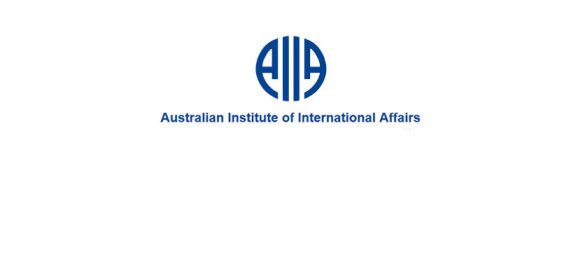Section: Australian Institute of International Affairs (Australia)
Assessing the G20: Great Impetus Amid Frictions
Given rising economic, social, political, environmental, and security risks around the world, this week was a tough time to hold a consensus-oriented global summit of major powers. Did the G20 Hangzhou summit manage to break new ground and significantly advance global governance? The Chinese presidency of the G20 deployed unprecedented resources...
Explosive Toll of Remnants of War
Anti-personnel landmines and other explosive remnants of war continue to endanger civilian populations around the world long after the conflicts have moved on. Impressive international action has been taken by both state and non-state actors to manage and remove the threats but the International Committee of the Red Cross says worldwide adoption...
Let’s Get a Syria Policy
With the humanitarian crisis intensifying in Aleppo and continuing instability across Syria, it is time to fill the Western policy vacuum and stop leading from behind. By living up to and implementing the values of freedom, rule of law and justice in Syria, the West may still be able to quash the forces driving Islamist terrorism. As the noose...
UN Security Council Needs More Elected Members
Following the Australian government’s decision not to nominate former prime minister Kevin Rudd for the role of United Nations secretary-general, attention is focussing on those candidates left in the running for the top UN job and their possible influence on the organisation’s future. But in the shadow of the high-profile UNSG...
New UN Security Council Members
On 28 June 2016, the 193 members of the United Nations General Assembly elected Sweden, Bolivia, Ethiopia and Kazakhstan as two-year, non-permanent members of the United Nations Security Council. After five rounds of voting, the final spot was a dead heat so a compromise was met, with Italy set to serve in 2017 and the Netherlands in 2018. The...
NATO Summit: Collective Defence & Nuclear Deterrence
When the NATO heads of state and government convened in Wales in 2014 following Russia’s invasion of Ukraine, their meeting was widely heralded as historic; and yet it is likely that last week’s Warsaw NATO summit will be the more important one. This is because it is only now that NATO genuinely has returned to its roots as an...
Mongolia and North Asian Security
Mongolia recently hosted the annual Ulaanbaatar Dialogue conference to discuss Northeast Asian security. With North and South Korea delegates present together for the first time, the conference presented an opportunity for all member delegates to raise concerns over Pyongyang’s nuclear ambitions among other regional cooperation issues. At...
Brexit: Russia and Europe’s Far Right
The British referendum offers Russia a welcome opportunity to further undermine European stability. For the Russian government a divided Europe is a goal that would allow it to exert greater economic and political influence in the region and regain influence in the Eastern European states that are increasingly looking west instead of east. The...
The State of Peace in 2016
The tenth edition of the annual Global Peace Index (GPI) produced by the Institute for Economics and Peace finds that the world is becoming less peaceful and the gap between the most and least peaceful countries continues to widen. Released this week at the House of Lords in London, the 2016 GPI shows that the Middle East and North Africa (MENA)...
Australian Foreign Policy: The Coalition Approach
This paper is part of the Australian Journal of International Affairs’ 2016 Federal Election Special and outlines the Coalition’s approach to international affairs. The full document can also be viewed here. Supported by one of the most professional and dedicated foreign policy bureaucracies in the world, one can rely on any...



